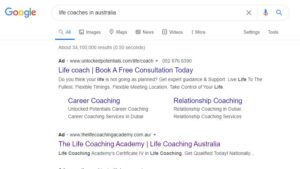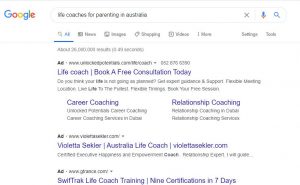Coaching is a broad industry, and the profitability of your coaching starts with your coaching niche. No coaching body gives you a specific set of guidelines on finding your own coaching niche. So, how to recognize your coaching niche? Is it that important?
If you’re starting new as a coach, you’ve still got time to start it right. And if you’re already a coach, and struggling to get your coaching business going, is it because of your coaching niche?
So, before we get started with a different coaching niche, let’s understand what’s a coaching niche? Take out some time and think through this as finding your coaching niche is not that straightforward and quick as it sounds.
What is a coaching niche?
As per the definition in Cambridge Dictionary, a job or position that is highly suitable for someone, especially one that they like, is his/her niche. A niche market is one of these specialized areas.
You can be a general life coach, business coach, executive coach, or just a general certified professional coach. Sometimes, you might be coaching someone who came to you with a situation that is relevant to your coaching niche. But as you coach, you find the situation is different and may not be related to your coaching niche. This does not mean you cannot coach the client, especially when you’re starting out.
Addressing the WHO and WHAT
The most vital questions that you need to answer are – WHO is your market, and WHAT solution are you providing to that market.
Many coaches start without a niche, and they’re doing fine. With time, your niche will find you. Observe your clients – which types of problems they came with, how they are, how you were successful with them. For example, some life coaches feel happy to coach someone dealing with anxiety. Some life coaches support people who want to boost confidence and get rid of negativity. Some seek coaches who can help navigate a specific health issue or to commit to their business. This is where niche stands out.
Try to address your WHOs as much as possible:
- What sort of people are you aiming to support?
- Who is an ideal client for you?
- Who is not your ideal client?
- How long does it take to reach your ideal clients?
- How will you market a point of difference?
- Does your coaching niche inspire you to serve long?
The WHATs can help you shape the decision:
- What are the answers you’re giving as a coach?
- What are the unique solutions or services you’re offering as a coach? (though coaches don’t provide solutions, it just helps you to define your niche and potential clients)
- What helps you decide ‘why’ this niche?
- What certification, background, or education do you have as a coach?
- What experience do you have as a coach (if any)?
- How do you feel when you coach someone?
Focus broadly or narrow it down?
As a new coach, keeping business open for all may seem profitable in the beginning. But being broad may kill your business. Searching life coaches in Australia gives you about 34,100,000 results (yes, in millions). But
if you search life coaches for parenting in Australia, it only shows 26,000,000 results! Can you see the difference?
There are thousands of life coaches in Australia. So, what makes you special as a Life Coach? When you say “I help people find their true calling”, the readers or audience understand – “Okay, she’s a life coach, but maybe that’s not what I’m looking for”.
Try to be transparent with your coaching solutions. Provide what they’re exactly looking for – say people who are looking for ways to boost confidence or to be happy, or suffering from anxiety. That’s your go-to-expert market you should be targeting as a coach. People will come to an expert instead of going through a whole coaching session that will cost money and time to them.
When you answer or solve the burning points of your market in the most practical ways, people will start relating to you on a deeper level.
Don’t hesitate to be the first.
If you’re clear on your niche and have the potential to take authority in your coaching niche, then don’t hesitate to be the first. It may take you time to dominate your coaching niche and bring clients. But eventually, you’ll be living a career that you truly envisioned as a coach.
Sure, it’s only one lot of people you’re serving as a coach, but as a buyer or client, that’s the most appealing point about your business (and coaching). So, the more precise you’re in narrowing your coaching niche, the better business you’ll develop (and with quality clients).
Being precise and unique in your coaching niche also means that people will find you on their own, and would genuinely be able to relate with you.
Don’t stop learning.
You’ve already learned as a coach that learning never stops. Lucinda Bassett started out as a personal coach for anxiety and depression. After her books got a tremendous response, she continued developing in her own niche. Today, she’s one of the popular life coaches featured on thousands of television shows and magazines, including Oprah, The View, and Cosmopolitan.
Start from a small coaching niche – later move to a larger niche following your expertise.
To sum it up…
Starting out as a new coach can be overwhelming and exhausting. Don’t put everything into one niche if you’re not ready to commit 100% to it. Be flexible, and once you’ve got enough feedback and references to progress, you know you’ve found your calling. If things don’t work out, keep experimenting – as a coach, you will figure it out.
Remember that each one of us has a natural gift that makes us unique. Think about the uniqueness of you. Embrace it and be candid with yourself. Ask yourself – what is coaching for you? Why do you want to contribute as a coach?
Our business builder module is designed exclusively for coaches who want to start out on their own and create a successful coaching business. Did we help you find your answers? You can connect with us to explore your coaching niche.









